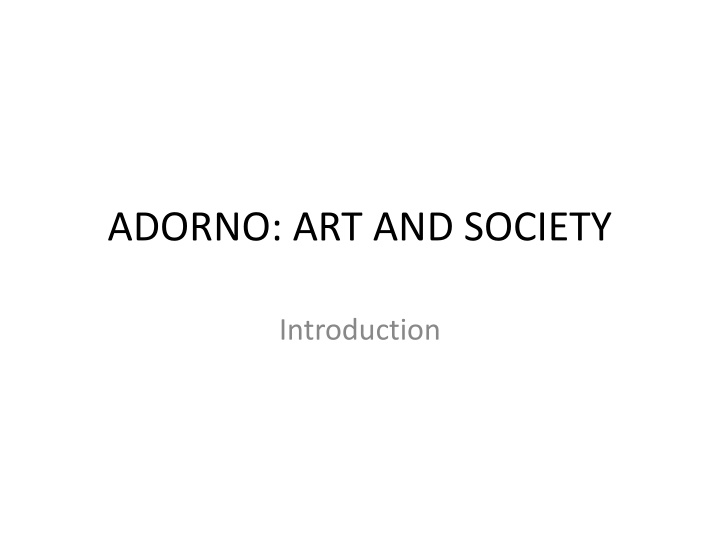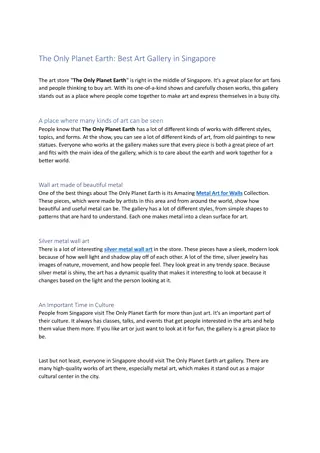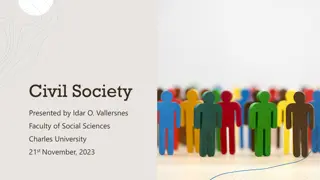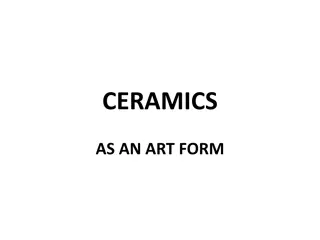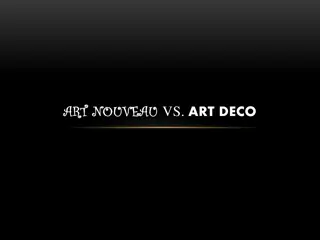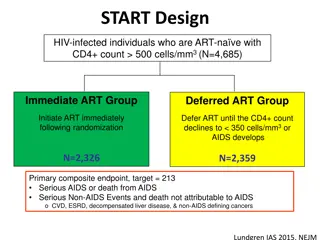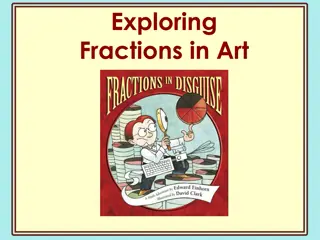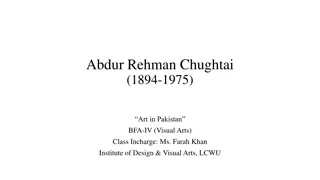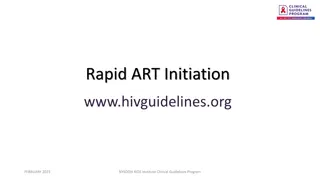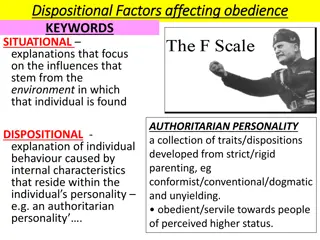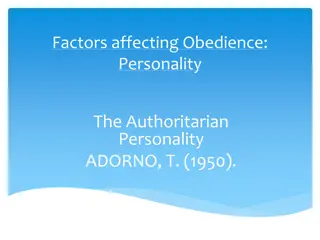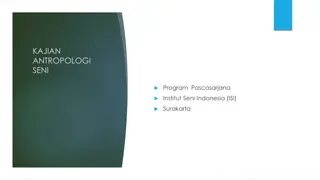Adorno: Art and Society Introduction
Aesthetic approach and experience of art, along with sociological and philosophical aspects, are explored in this comprehensive introduction to Theodor W. Adorno's works. Delve into Adorno's key writings, his role at the Institute of Social Research, and the evolution of the Frankfurt School. Discover Adorno's unique style of writing and his concept of Negative Dialectics that challenges traditional views on synthesis.
Download Presentation

Please find below an Image/Link to download the presentation.
The content on the website is provided AS IS for your information and personal use only. It may not be sold, licensed, or shared on other websites without obtaining consent from the author.If you encounter any issues during the download, it is possible that the publisher has removed the file from their server.
You are allowed to download the files provided on this website for personal or commercial use, subject to the condition that they are used lawfully. All files are the property of their respective owners.
The content on the website is provided AS IS for your information and personal use only. It may not be sold, licensed, or shared on other websites without obtaining consent from the author.
E N D
Presentation Transcript
ADORNO: ART AND SOCIETY Introduction
Aesthetic approach Aesthetic experience of art - Sociological aspects - Philosophical aspects - Art
Theodor W. Adorno (1903-1969) Frankfurt am Main Exile 1934-1949 1958 director of the Institute of Social Research
1933 Kierkegaard: Construction of the Aesthetic 1944/47 Dialectic of Enlightenment 1949 Philosophy of New Music 1951 Minima Moralia: Reflections from Damaged Life 1956 Against Epistemology 1958 Notes to Literature I
1961 Notes to Literature II 1963 Hegel: Three Studies 1964 The Jargon of Authenticity 1966 Negative Dialectics 1970 Aesthetic Theory (published posthumously)
Institute for Social Research Frankfurt School founded 1923 by Felix Weil 1930 Max Horkheimer named the director Zeitschrift f r Sozialforschung (Journal for Social Research) Theodor W. Adorno (1903-1969), Walter Benjamin (1892-1940), Max Horkheimer (1895- 1973), Herbert Marcuse (1898-1980) 1933 moved to Geneva, 1934 New York 1949 Adorno and Horkheimer return to Frankfurt
1951 reopening of the Institute Second generation : J rgen Habermas, Albrecht Wellmer Third generation : Axel Honneth (current director of the Institute), Christoph Menke, Juliane Rebentisch
Adornos Style of Writing Parataxis No explicit coordination or subordination of sentences, paragraphs or entire chapters Topics of one part intersect those of the others Rejection of a presupposed first principle or origin from which philosophy may proceed No hieararchy
Negative Dialectics Adorno s arguments highlights unavoidable tensions between opposites Negative because it refuses to affirm any underlying identity of final synthesis of the opposites The main opposition occur between the particular and the universal and between culture and society
